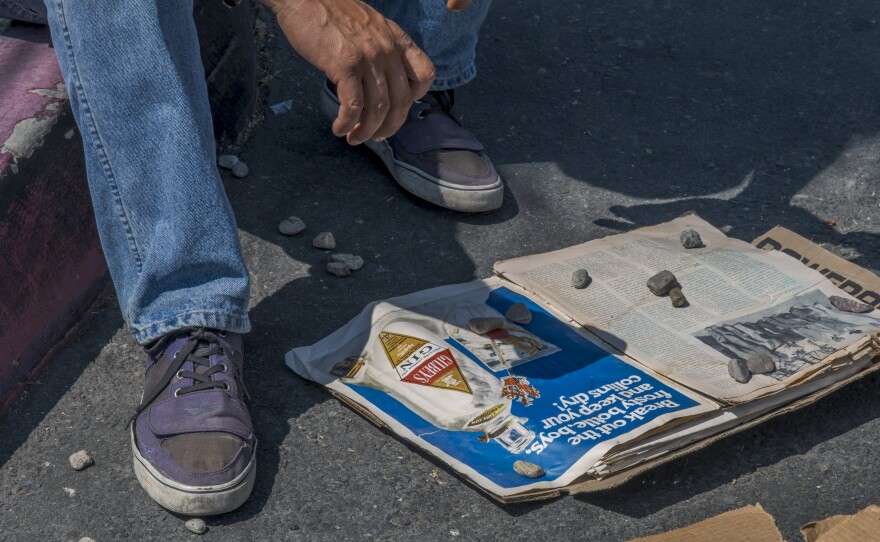One homeless services provider said there's been a rush of people experiencing homelessness coming down from San Diego to South Bay.
Many are looking for food, shelter, showers and other services at organizations like Community Through Hope.
“Three weeks before San Diego’s ban went into effect on camping, and now three weeks in we've seen a massive influx of people from the city of San Diego right here (in) Chula Vista,” said Sebastian Martinez, executive director of the Chula Vista non-profit, which is one of South Bay’s largest homeless service providers.

Martinez said Community Through Hope is doing the best they can to keep up, but neither they nor South Bay have the capacity to provide enough services for everyone.
“On a day-to-day basis we’re serving anywhere from 40 to 60 people that are coming in for a variety of services — it could be nutrition, hygiene, whatever. But in recent weeks that number has doubled, on some days even tripled, depending on how intense the need is,” he said.
Daniel Ness has frequented Community Through Hope for over two years, and doesn’t agree with the San Diego ban.
“People need places to stay. Where are they going to stay at?” Ness said.
He said that tensions have been high over the past few weeks around Community Through Hope due to limited supplies and overcrowding.

“It's a revolving door. There's people in this area, they come and go. They haven't been here as long as I have, a lot of them,” Ness said.
Chula Vista Mayor John McCann said he’s aware of the increase in people accessing homeless services, and the city is considering a similar approach to San Diego to address the situation.
“At the last city council meeting, I went ahead and made a motion with unanimous consensus of my fellow council members to look at the ordinance and see what we could potentially implement in the city of Chula Vista,” the mayor said.
Martinez disagrees with Chula Vista implementing a similar ban to San Diego, but doesn't see the need for homeless services in South Bay slowing down.
Complicating matters is the fact that service and shelter options in the region are extremely limited.
“When they get here to Chula Vista we have to break it to them — if they were waiting to perhaps get into a shelter in San Diego, they're not going to get shelter in Chula Vista. There is only one option and it's currently at capacity,” Martinez said.

He said the steep increase in people seeking help may force Community Through Hope to change their model and schedule to maintain the capacity and quality of their services.
“Normally the food lasts us through Friday, but now we're running out Wednesday, and sometimes we're running out midday,” Martinez said.
The executive director said any donations and volunteers willing to help Community Through Hope will allow them to provide services to more people in need.






